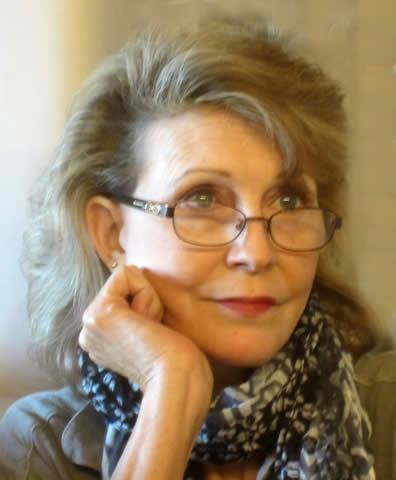|
THE SCIENCE OF CONSCIOUSNESS April 25-30, 2016 - Tucson, ARIZONA Loews Ventana Canyon Resort PLENARY
FRIDAY April 29, 2016 11:10 am to 12:30 pm PL 8 - Evolution and Consciousness
EFS International, Kirkland; Institute for Systems Biology, Seattle; Northeastern University, Boston
Katherine T. Peil: Founding Director of non-profit EFS International, whose mission is fostering global emotional wisdom. From a background in Pantheistic spirituality and clinical and social psychology, her lengthy interdisciplinary inquiry into the biophysical substrates of emotion led to the identification of its previously mysterious biological function: as an ancient “self-regulatory sense” – an evaluative perceptual mechanism through which living systems directly participate in self-organizing and evolutionary processes, and one that invites deeper inquiries into the physics of consciousness. A former affiliate of Northeastern University and the Harvard Divinity School, Ms. Peil has spoken internationally on the function, evolution, physio-chemical, and informational nature of emotion, as well as its central role in optimal health, human development, moral reasoning, universal spiritual experiences, and its informative value toward creating nonviolence in a global village. Introductions to this work can be found at: http://emotionalsentience.com/.
Abstract: Emotional Sentience and the Nature of Phenomenal Experience When phenomenal experience is examined through the lens of physics, several conundrums come to light including: Specificity of mind-body interactions, feelings of free will in a deterministic universe, and the relativity of subjective perception. The new biology of “emotion” can shed direct light upon these issues, via a broadened categorical definition that includes both affective feelings and their coupled (yet often subconscious) hedonic motivations. In this new view, evaluative (good/bad) feelings that trigger approach/avoid behaviors emerged with life itself, a crude stimulus-response information loop between organism and its environment, a semiotic signaling system embodying the first crude form of “mind”. Emotion serves the ancient function of sensory-motor self-regulation and affords organisms – at every level of complexity – an active, adaptive, role in evolution. A careful examination of the biophysics involved in emotional “self-regulatory” signaling, however, acknowledges constituents that are incompatible with classical physics. This requires a further investigation of the fundamental nature of “the self” as the subjective observer central to the measurement process in quantum mechanics, and ultimately as an active, unified, self-awareness with a centrally creative role in “self-organizing” processes and physical forces of the classical world. In this deeper investigation, a new phenomenological dualism is proposed: The flow of complex human experience is instantiated by both a classically embodied mind and a deeper form of quantum consciousness that is inherent in the universe itself, implying much deeper – more Whiteheadian – interpretations of the “self-regulatory” and “self-relevant” nature of emotional stimulus.
|
|
|||||||||||||
